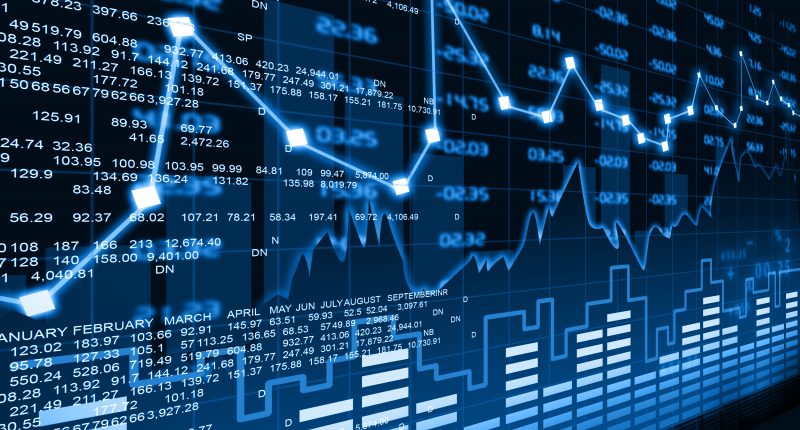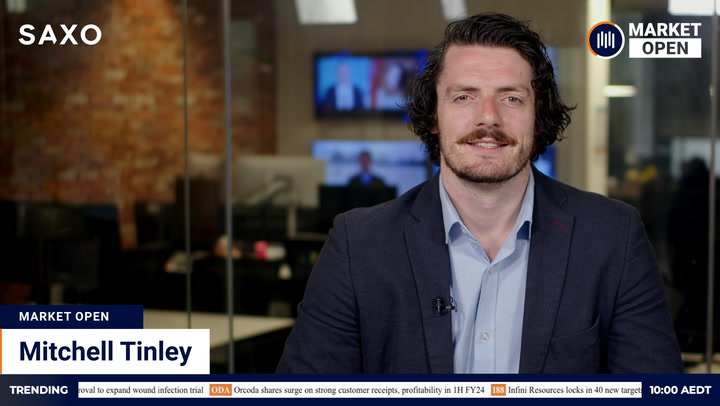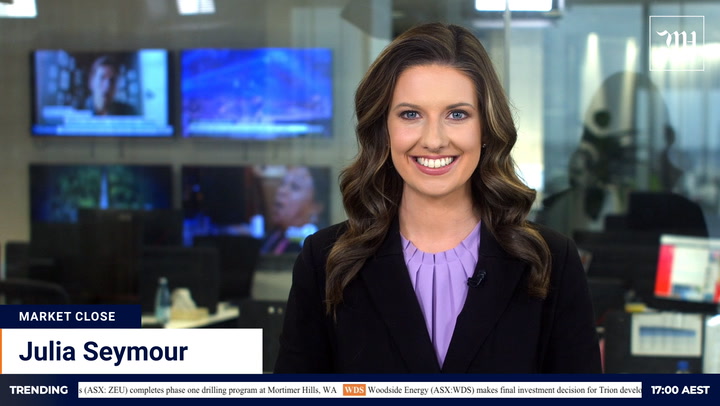A defensive rotation in the US points to a negative start to trade after the international spread of the Covid-19 virus reignited fears of global recession.
ASX SPI200 index futures slumped 47 points or 0.7 per cent after US stocks declined more than 1 per cent. Gold, US treasuries and defensive sectors rallied as traders switched into havens. The dollar tested a fresh 11-year low, lately down 0.5 per cent at 65.94 US cents.
A sell-off that began in the US on Thursday continued on Friday following soft US economic data and news of an upsurge in coronavirus infections outside China. The S&P 500 dropped 35 points or 1.05 per cent as sectors with strong ties to China sold off. The tech-heavy Nasdaq sagged 174 points or 1.39 per cent. The Dow shed 228 points or 0.78 per cent. The three major indices lost between 1.3 and 1.6 per cent for the week, breaking a two-week winning run.
Traders were spooked by a report that showed business activity in the US contracted this month for the first time in four years. IHS Market manufacturing and services indices both declined as the virus outbreak impacted supply chains and tourism. The Flash Services PMI dived four points from 53.3 to 49.3, below the 50-point level that separates expansion from contraction.
Also unsettling financial markets were signs that the virus is spreading rapidly overseas. South Korea yesterday raised its alert level to the highest as the death toll reached six and the number of confirmed cases climbed to 602. Italy lost a third victim to the flu-like virus as the number of cases jumped to 150 from just three earlier last week. Iran, which reported its first cases on Wednesday, announced eight people had died and 43 cases had been confirmed.
The S&P 500 tech sector – a proxy for the market’s fluctuating attitude towards the epidemic – skidded 2.25 per cent. Wall Street’s “far gauge”, the VIX, climbed to its highest level since the first days of the month. Real estate, consumer staples and health were the only sectors to trade higher.
BHP’s US-listed stock shed 0.45 per cent and its UK-listed stock 0.93 per cent. Rio Tinto bounced 0.79 per cent in the US after losing 0.17 per cent in the UK. The mixed performance came as iron ore continued to defy any impact from the epidemic. The spot price for ore landed in China rose 70 cents or 0.8 per cent to $US91.80 a dry ton.
The ASX 200 ended last week near an all-time high despite a 0.3 per cent decline on Friday. The final week of reporting season continues with updates from BlueScope Steel, WorleyParsons and G8 Education today. The rest of the week brings reports from Caltex, Oil Search and tech leader Appen tomorrow; Woolworths, Rio Tinto and, Nine Entertainment on Wednesday; and Afterpay and Flight Centre on Thursday.
With just 40 companies in the ASX 200 left to report, analysts say this earnings season has been stronger than feared, despite the impact of bushfires, drought and the Covid-19 virus.
“By far the overriding theme of the reporting season is how companies are dealing with the coronavirus and that looks to be weighing on commodity company earnings expectations, but not to a massive extent,” Hasan Tevfik, investment strategist at MST Marquee, told the Sydney Morning Herald. “It seems to be an average season. The downgrades have been no worse and no better than what we’ve seen previously for the entire market.”
Gold climbed to its highest level in almost seven years. Gold for April delivery settled $8.20 or 0.5 per cent firmer at US$1,611.80 an ounce, its highest level since March 2013.
A rebound week in oil markets stalled amid reports of a rift between major producers Saudi Arabia and Russia. Brent crude fell 81 cents or 1.4 per cent at $US58.50 a barrel on Friday, trimming gains for the week to 2.1 per cent. Saudi Arabia and Russia are reportedly at loggerheads over Russia’s refusal to reduce production to support prices.
Nickel fell to an eight-month low during a mixed session for industrial metals on the London Metal Exchange. Three-month nickel dropped 1.4 per cent to $US12,530 a tonne. Copper rose 0.7 per cent, aluminium 0.2 per cent and tin 0.3 per cent. Lead dropped 3.2 per cent and zinc 0.2 per cent







